Bridging Healthcare Gaps for Vulnerable Communities
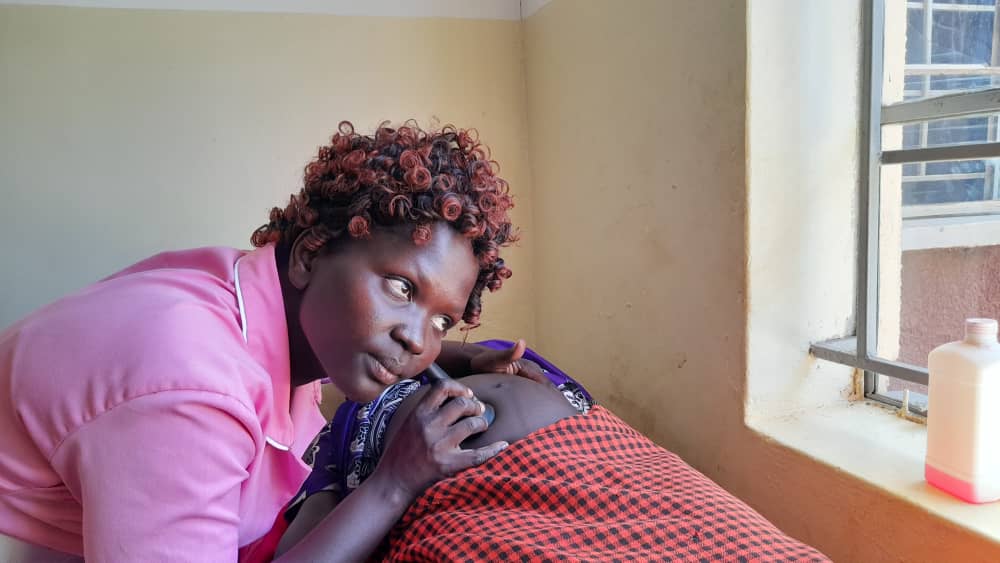
Sometimes we don’t know what we don’t know.
This was the case for Lucy Lacwech, a midwife in Uganda. Midwives are closely associated with women’s health. Yet there were gaps in Lucy’s understanding of how she could attend to some of her patients’ critical needs.
The TOGETHER project, with funding from Global Affairs Canada, is helping to bridge the gaps in quality healthcare delivery. Improving healthcare service ultimately means healthier, safer communities and lives saved. This work is part of TOGETHER’s overarching goal of ensuring that the most vulnerable, especially girls and women, can enjoy their health-related human rights.
For Lucy, participating in special training and awareness building on sexual and gender-based violence (SGBV) gave her the practical skills and knowledge she needed to be among the first responders. This training was provided by ADRA Uganda and its partner Mildmay.
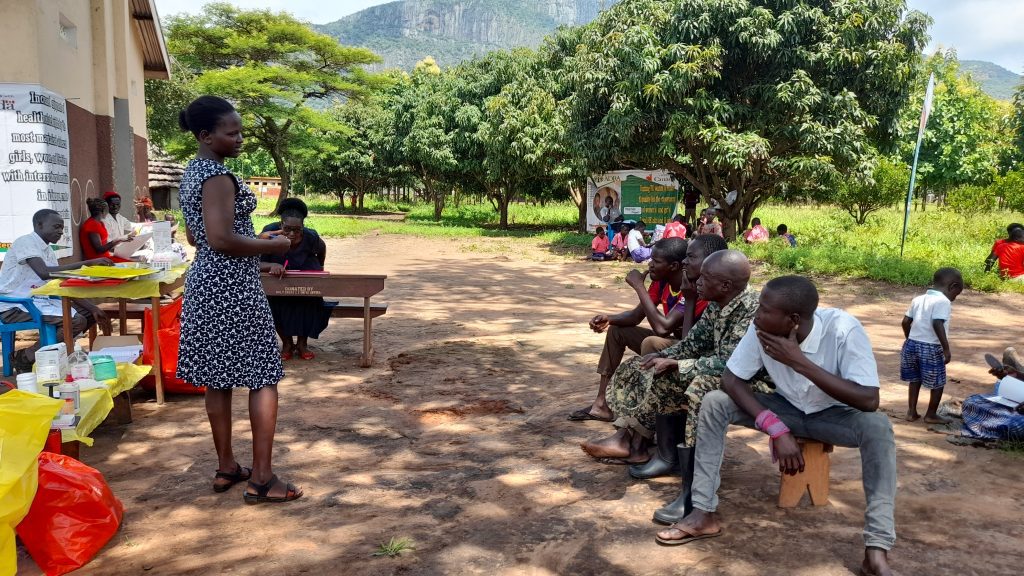
“I could save the life of the survivor” – Lucy’s Story
“As a midwife at the certificate level, I used to not attend to SGBV cases because these were supposed to be handled by Diploma holders and clinical officers. If there was an SGBV case and one of these individuals was not around, we would ask the patients to return the next day.
“However, through the training we received from Mildmay and ADRA, I realized that this practice left our patients in a very delicate stage where they could contract HIV, which we could have prevented if only we had given them the services they required.
“We had a different perspective. We thought that the only reason SGBV cases came to the facility was to collect a police form. So, we would wait for the persons authorized to fill these forms and discharge the patients.
“However, I learned that even before filling out the police form, I could offer lifesaving services, which include testing the victim for HIV; administering PEP since we don’t know the health status of the perpetrator; taking the patient’s history; conducting a forensic test; and finally treating any tears and wounds. I realized that I could offer these services at my level to save the life of the survivor even before filling in the police form.
“My attitude toward SGBV response has changed. I can save at least one life at a time with the knowledge I received from the training. I can attend to SGBV survivors and even give them counselling among the services provided.”
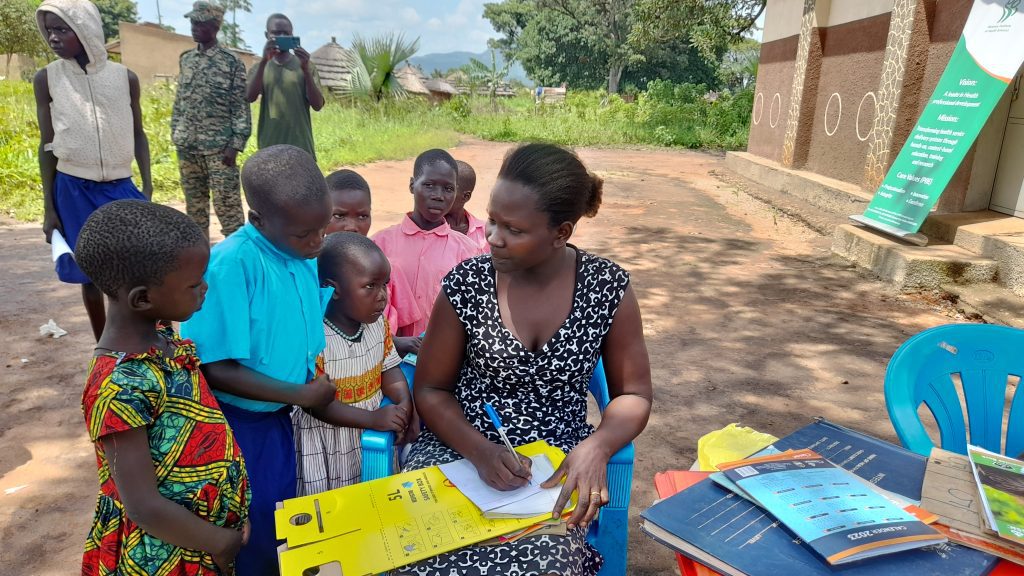
Shared Learnings Maximize Impact
During the training, attendees were encouraged to draw up work plans for Continuous Medical Education (CMEs) for staff at their health facilities. Lucy participated in crafting the CMEs for her health facility.
“The CMEs have been so helpful to us since medical interventions change on a daily basis. We need to keep ourselves updated on health issues to ensure effective service delivery. ADRA and Mildmay encouraged me to share the knowledge I received from the training with my fellow staff.
“During the CMEs, we discuss how to improve service delivery in regard to SGBV, sexual and reproductive health and rights, and other health-related issues. While doing this, we invite the support staff, such as the porters, security guards, and cleaners, to attend the CMEs because SGBV is a critical topic. It requires everyone at the health facility to have knowledge about it so as to ensure collective support for patients. When patients come to the facility, they always encounter the support staff before reaching the healthcare workers. Therefore, it’s very important for them to know how to support these clients, especially since the SGBV cases require emergency care.”
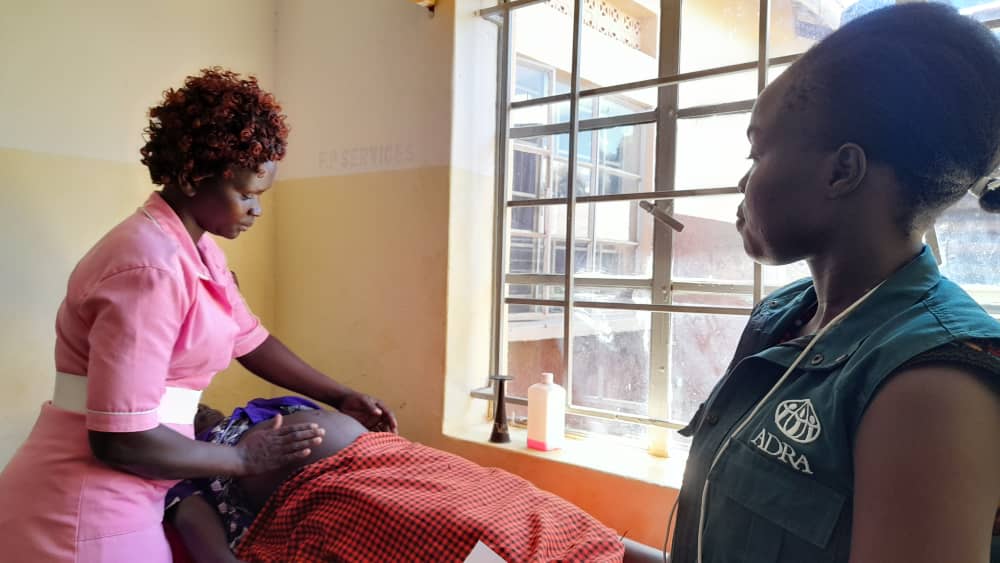
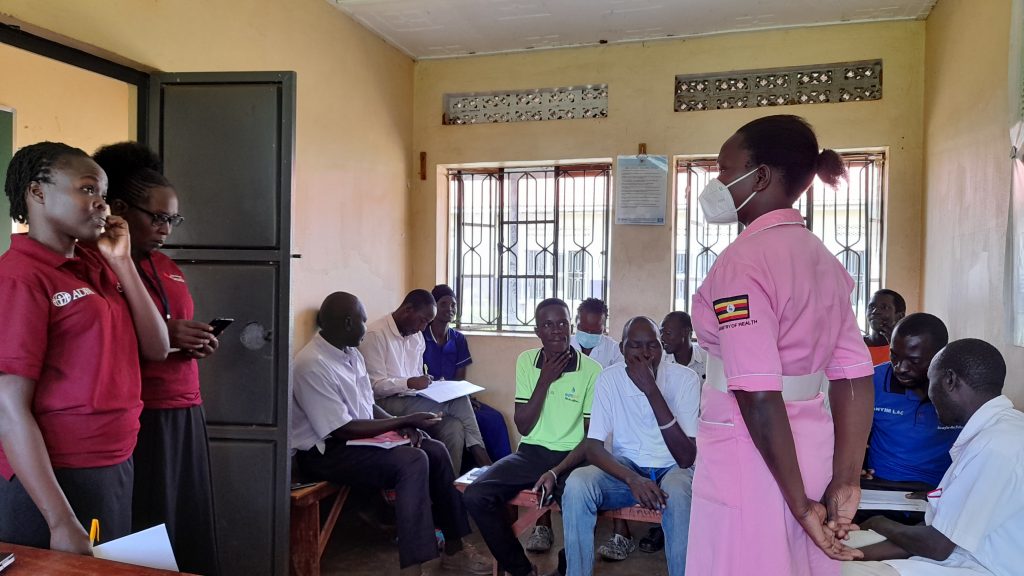
Supporting Health Systems Means Healthier Communities
TOGETHER seeks to improve access to quality healthcare for the most vulnerable. At the same time, the project comes alongside healthcare professionals to empower them to deliver the highest quality services possible. The end result is all are able to enjoy good health and well-being.
In Lucy’s words:
“I am grateful for all the support ADRA and Mildmay are providing to our facility. We are overwhelmed with the population that we serve. This is the only health facility in the entire subcounty. Most of the community members cannot access medical services due to the remoteness and lack of transport means. Yet they suffer a lot from SGBV which needs medical attention. Also, most of the community members are silent about such cases and take a long time to report these cases because they are not aware of the appropriate referral system.“
“ADRA’s interventions at our health facility have been very vital, starting with the training which improved my knowledge and skills in service delivery.
“The training of the village health teams (VHTs) has also helped to bridge a gap. Most of the VHTs didn’t know their role in the community. This left the entire burden on the [health] facility.
“Lastly, the extended support through integrated [health] outreaches has enabled us to extend our services to the remote and hard-to-reach places where people are suffering from health complications but cannot access medical services. While at the health facility, we cannot sensitize people about SGBV services because we are busy attending to long queues of patients. However, the opportunity of the integrated [health] outreach gave us a wider audience and ample time to sensitize the community on available services for SGBV survivors and create awareness on the appropriate referral channels to ensure that survivors report cases to the health facility soon enough so that we can save lives.
“I request that ADRA continues this helping hand so we can have several [health] outreaches to provide services even to the last person in this sub-county.”
Your contributions to ADRA’s health projects make work like this possible. Thank you!
Let's make a difference together!
Related News and Stories
- News Releases, Stories
- News Releases, Stories
- News Releases, Stories